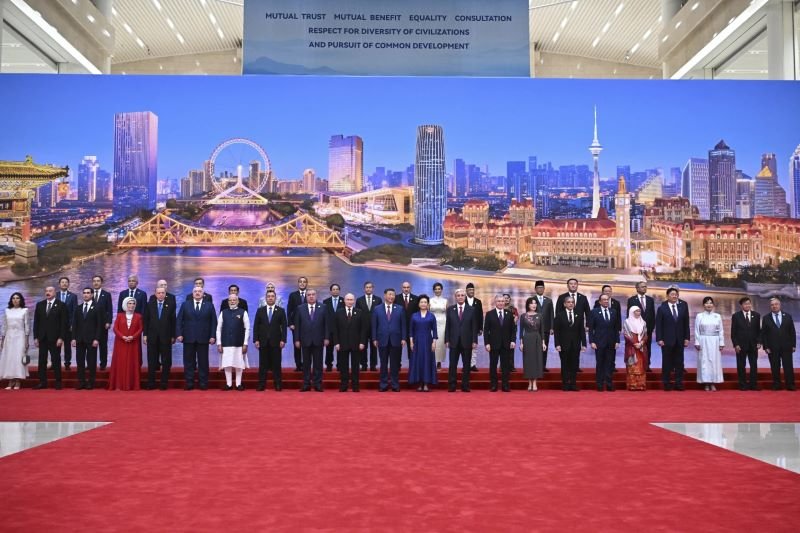The Shanghai Cooperation Organization (SCO) is holding its 2025 summit in Tianjin, China, where leaders from across Eurasia are gathering to discuss security, economic cooperation, and global challenges. Though the SCO lacks the name recognition of NATO or the European Union, its influence is steadily growing and that raises pressing questions about the balance of power worldwide.
Why is This Summit Important Now?
The timing could hardly be more significant. The world is grappling with wars in Gaza and Ukraine, sharpening rivalries among major powers, and mounting economic uncertainty. Against this backdrop, the SCO unites 10 full members, along with observers and dialogue partners stretching across Asia, Europe, and Africa. Together, they represent nearly half of humanity and around one-quarter of global GDP.
Beyond the numbers, the SCO provides a rare forum that includes China, Russia, India, and Iran, actors who often find themselves outside Western-led platforms. This makes the summit a unique stage for dialogue and coordination outside Washington or Brussels’ orbit.
Why is China Seen as an Alternative Power?
For Beijing, the SCO is more than just a regional grouping. It serves as a vehicle to demonstrate leadership, expand influence, and push for what it calls a multipolar world order. Unlike Western groups and institutions such as NATO or the IMF, the SCO operates on principles of consensus, non-alignment, and resistance to Western dominance.
Read More: SCO Summit: Uzbekistan Bridges Trust Across Eurasia
By expanding its membership and fostering deeper cooperation on trade, security, and connectivity, China positions itself not only as a participant but as a central architect of a new style of diplomacy. The Tianjin meeting underlines Beijing’s effort to shape global rules, not simply follow them.
What is the Message Coming Out of Tianjin?
The summit’s tone emphasizes unity and inclusivity. Leaders repeatedly invoke the “Shanghai Spirit”, principles of trust, equality, respect for cultural diversity, and decision-making by consensus. The SCO portrays itself as a bridge of cooperation at a time when many countries feel restricted by Western-dominated forums.
For states seeking greater autonomy in global affairs, this platform sends a clear message: there are alternative spaces for dialogue and collective action.
What are the Likely Outcomes?
Practical results may include closer coordination on counter-terrorism, cyber defense, and regional security issues. The SCO’s existing security framework in Tashkent could see its scope broadened. Economic discussions are also expected to cover trade routes, energy projects, and digital connectivity across Eurasia, areas closely tied to China’s Belt and Road Initiative.
Read More: Xi Calls for Deeper Cooperation at SCO Summit in Tianjin
The introduction of the “SCO Plus” format, bringing in non-member states and international organizations, challenges the long-standing dominance of Western-led institutions in setting global norms. For countries like Iran, Belarus, or Saudi Arabia, engaging in SCO processes signals a willingness to move toward a more multipolar world.
The Bigger Picture
The Tianjin summit is more than just another regional gathering. For China, it is an opportunity to showcase its ambition to lead beyond Western frameworks. For Russia, it offers solidarity as it faces isolation in the West. And for smaller or mid-sized states, it provides space for diplomacy without being forced into choosing sides in the US–China rivalry.
In short, the SCO summit reflects shifting currents in international politics, where old structures no longer dominate the way they once did, and new platforms are emerging to shape the global conversation.
Farkhund Yousafzai is an Associate Editor at The Diplomatic Insight.



